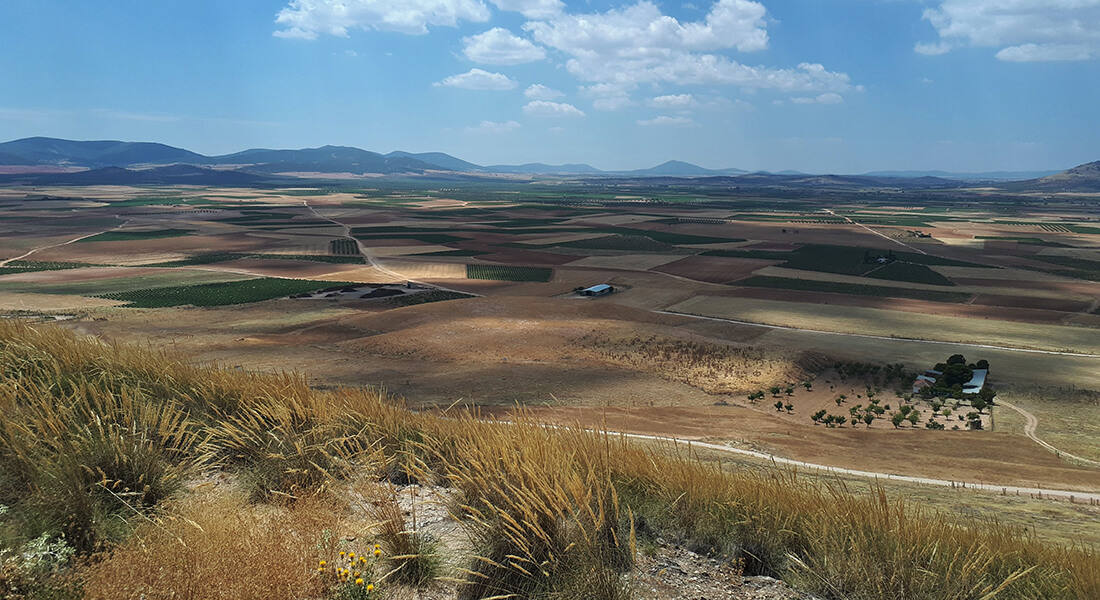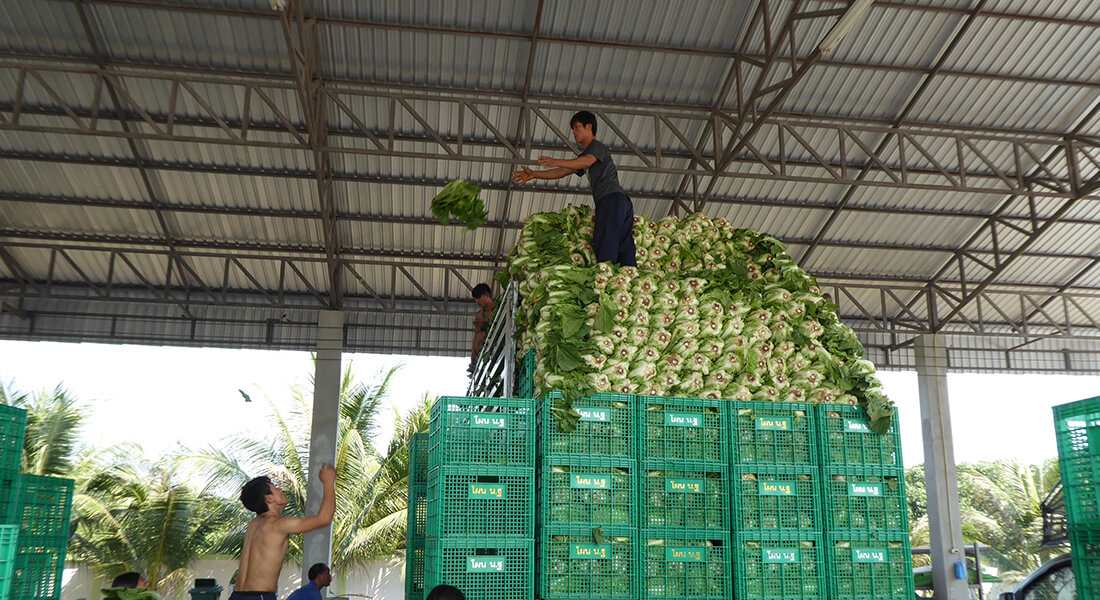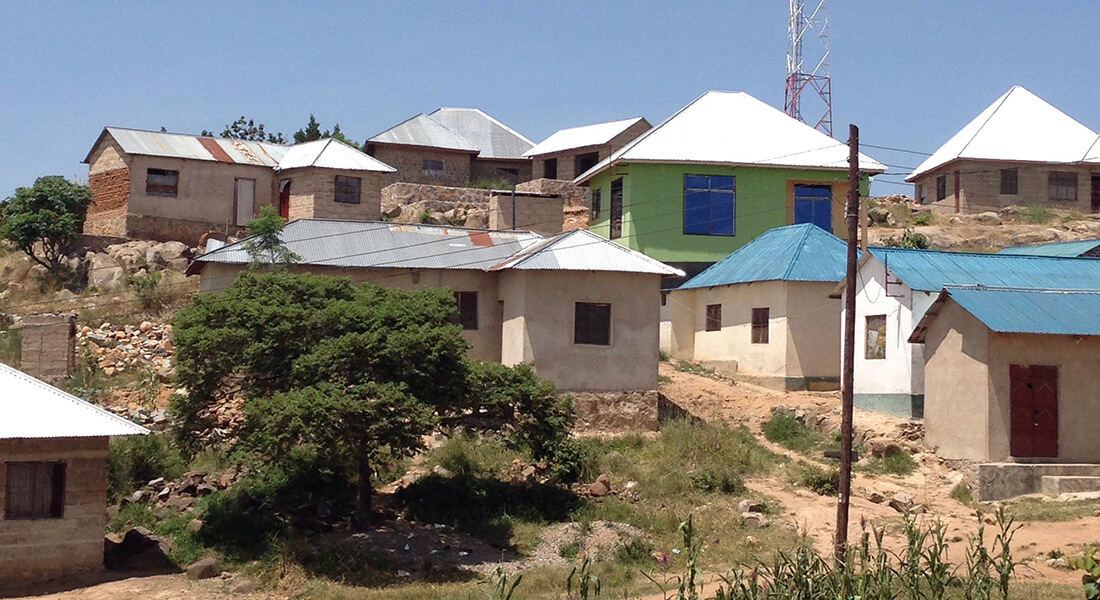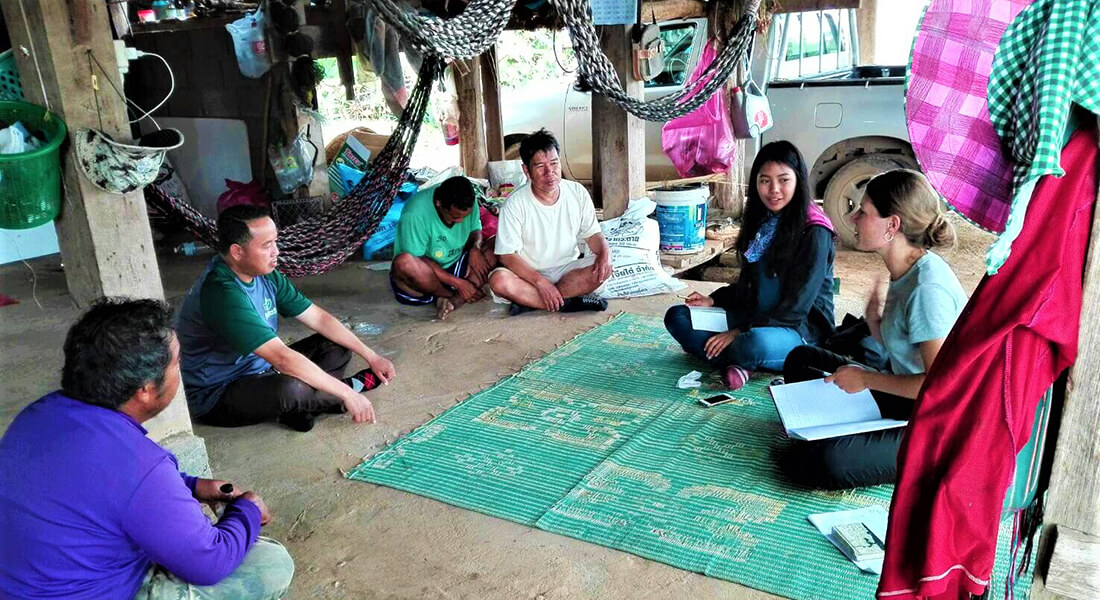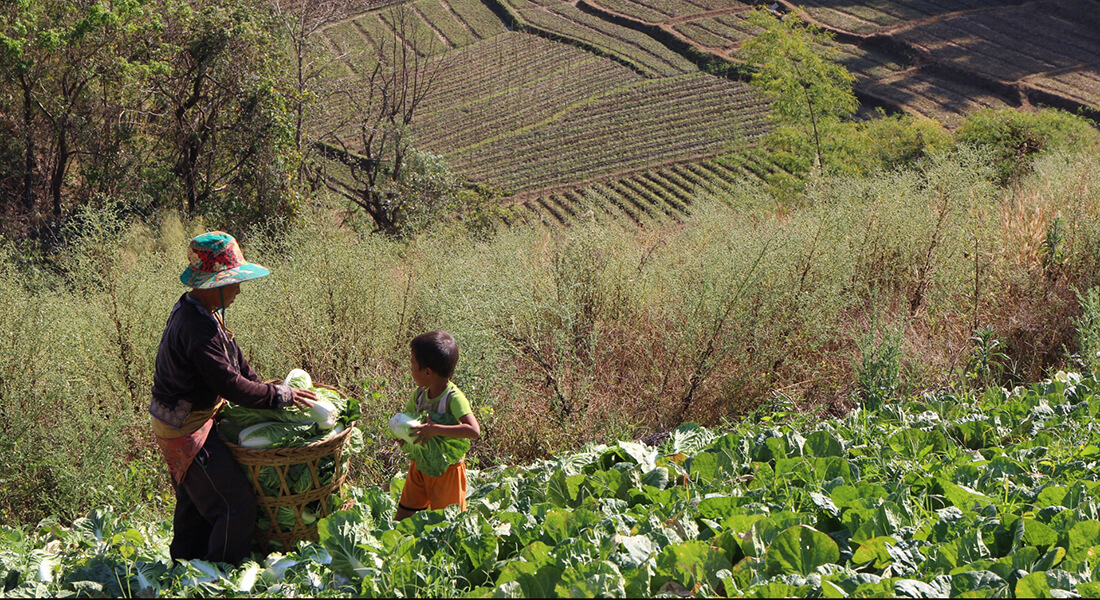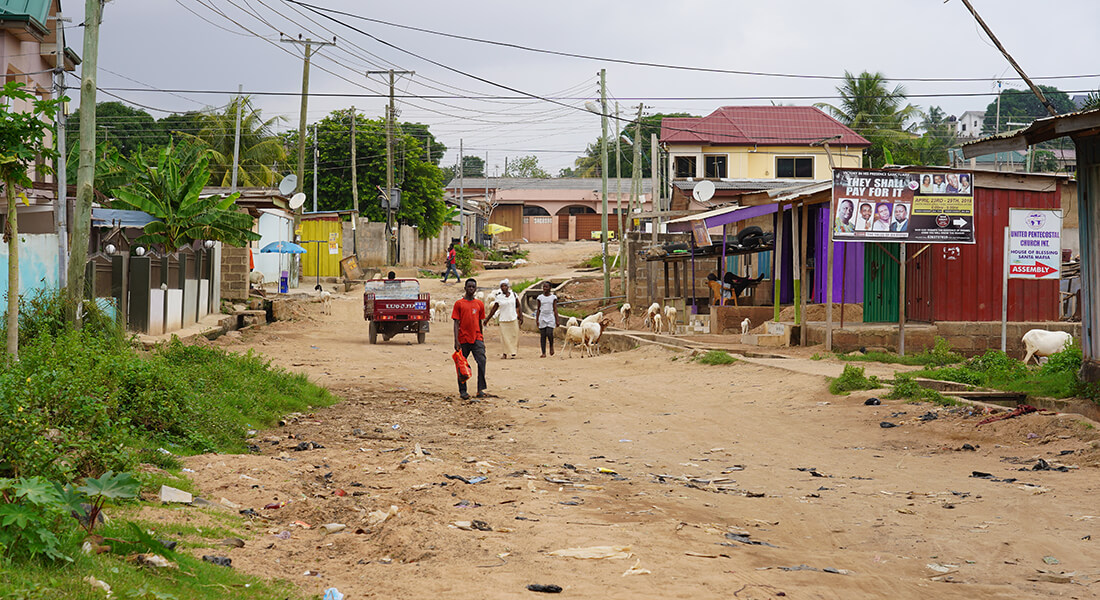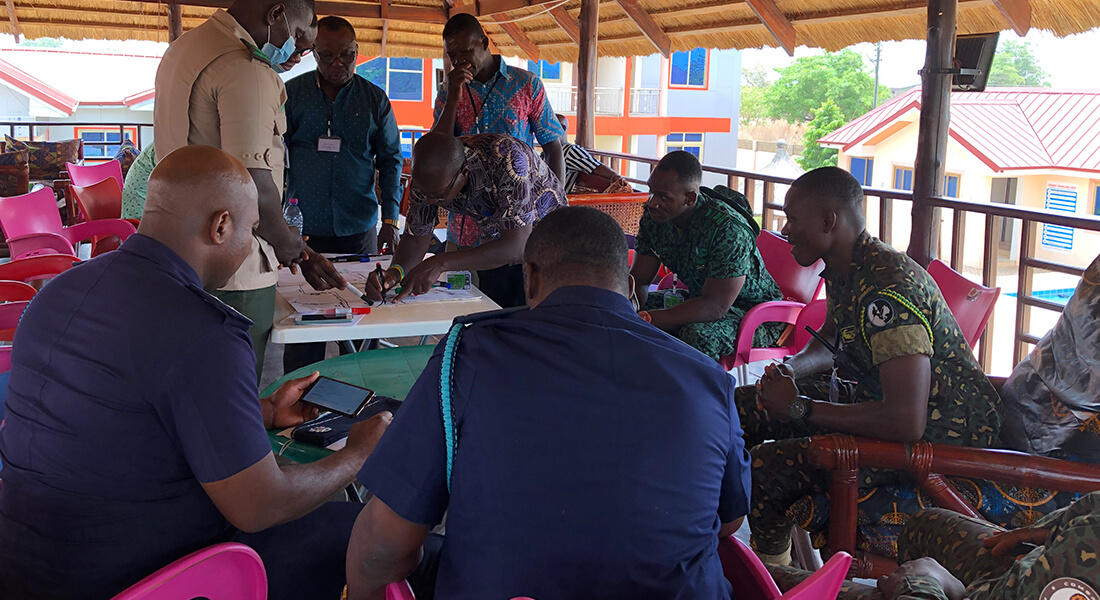 Marianne Nylandsted Larsen
Marianne Nylandsted Larsen
Associate Professor
mnl@ign.ku.dk
+45 35 32 41 67
Environment and Society in the Global South
How people manage and use land is central to addressing major sustainability challenges. This includes climate change, food and nutrition security, biodiversity conservation, sustainable energy, and poverty alleviation. We examine how and where land-cover and land use changes occur, the factors driving changes in land systems, the outcomes of land system changes, and how land systems can be governed to help achieve various sustainability goals (e.g., nature conservation, equity and justice, poverty alleviation, food security). Examples of research and teaching areas include: land acquisitions and their effects on local livelihoods; rural-urban transitions; transformations of farming systems; outcomes of sustainability commitments; forest dynamics and the outcomes for local people’s livelihoods and food and nutrition security; land use and climate change interactions.
Urbanization and rural transformation unfold in the interaction between globalization processes and local development dynamics. Within this global-local nexus, we examine the drivers, dynamics and outcomes of societal transformation processes in rural and urban areas – and how rural and urban spaces can be governed for sustainable and inclusive development. Examples of research and teaching areas include the significance of rural-urban linkages for small town development; the interconnections between world market dynamics and rural livelihood changes; the impact of global agro-industrial value chains on regional development; the interactions of human mobility, migration, urbanization and urban spatial transformations.
The empirical research activities are concentrated in Africa (both East, West and South), South-East Asia and the Pacific. The research group continuously emphasizes to capitalize the interdisciplinary potential which lies in developing research approaches that cut across the key research areas described above.
Ongoing Research Projects
The research group is engaged in projects that are funded through national and international grants. Most of the projects are carried out in cooperation with other research institutions in Denmark, Europe, and the Global South.
The list is organized chronologically, with the most recent projects first:
- Plasticulture Farming in Semi-Arid Regions under Climate Change. Danida 2025-2029.
- Climate Change Mitigation in Agroforest Landscapes through Sustainable Sourcing Policies (CAFSUS). Danida 2024-2029.
- TRANS-AG: Governing Transformation in Agricultural Systems in Vietnam. Danida 2024-2029.
- Urban Encroachment – Untangling Drivers and Dynamics of Land-Use Transitions in Ecologically Sensitive Areas. Independent Research Fund Denmark 2024-2028.
- The Plasticulture Enigma. Geocenter Denmark 2024-2027.
- The Role of Rural-Urban Linkages for Enhanced Climate Resilience in Rural Tanzania (RUL4CLI). Danida 2022-2027.
- FairFrontiers - Fair for whom? Power, Politics and Precarity in Transformations of Tropical Forest-Agriculture Frontiers. Grant from Research Institute for Humanity and Nature (RIHN), Kyoto, Japan, 2021-2026.
- RurbanClimate - Climate Resilience Across the Rural-Urban Continuum. Danida 2021-2025.
Recently completed Research Project
- BSU 3 - Building Stronger Universities. Program with Sokoine University of Agriculture (SUA), Tanzania. Danida 2017-2023.
- TRACE - Plastics from source to sink: Exploring transport pathways and fate of plastic waste in coastal waters. Geocenter Denmark, 2020-2023.
- Beyond the 'Supermarket Revolution Myopia'- Traditional Markets and Sustainable Upgrading opportunities in Domestic Food Value Chains. Det Frie Forskningsråd, Samfund og Erhverv, 2017-2022.
- COUPLED - Operationalising telecouplings for solving sustainability challenges related to land use. Marie Skłodowska-Curie Action - Innovative Training Network (ITN), 2018-2022.
- Inspire4Nature -International training at the Science-Policy Interface for Researchers in Europe, for Nature. Marie Skłodowska-Curie Action - Innovative Training Network (ITN), 2018-2022.
- Rural-Urban Transformation: Governance, Mobility and Economic Dynamics in Emerging Urban Centres for Poverty Reduction in collaboration with Sokoine Agricultural University (SUA) Tanzania, Danida 2015-2022.
- Sustainable Value-Chains: Aquaponics in Colombia. Danida Consultative Research Committee for Development Research (FFU), 2018-2021.
- SEBEI - Socio-economic Benefits of Ecological Infrastructure. Danida Consultative Research Committee for Development Research (FFU), 2018-2021.
- UNAS – Exploitation of Natural Resources in Southern Greenland. Geocenter Denmark, 2018-2021.
- Organic Cotton for Employment. Danida-FFU, 2015–2021.
- POLICOFA II: Enhancing Productivity, Market Access and Incomes for Small Farming Business in Tanzania - Potentials and Limitations in Contract Farming. Danida-FFU, 2014-2021.
- TGG-N: Transiting to green growth (Nepal). Danida-FFU, 2014-2019.
We supervise Master's thesis projects and we are pleased to include Master students in the work of the research group. Below is a list of previous Master's thesis titles which can be used for inspiration or for finding a potential supervisor.
We would be pleased to include Master students in the work of the research group. Below is a list of previous Master's thesis titles which can be used for inspiration or for finding a potential supervisor.
- For Efficiency or Empowerment? Unravelling Women's Participation in Humanitarian Assistance (supervised by Jytte Agergaard)
- Politics of census making: A case study of Kosovo 2011 housing and population census (supervised by Jytte Agergaard)
- Climate Change relocation as an adaptation strategy: lessons learned from small indigenous communities in Alaska from a governance perspective (supervised by Jytte Agergaard)
- Between forest destroyers and forest guardians: Local resistance to conservation in Thailand. The case of Sob Lan and the Ob Khan National Park (supervised by Jytte Agergaard)
- Clashing or complementary? The intertwinement of a new migration-development nexus and the actors of international development (supervised by Jytte Agergaard)
- Refugees in ‘green’ initiatives – the compatibility of refugee livelihoods and environmental protection (supervised by Jytte Agergaard)
- Resettlement as climate change adaptation: A case study investigated in rural Zambia (supervised by Jytte Agergaard)
- Understanding Migration as a Climate Change Adaptation Strategy: Case Study of the Coastal Communities in Bangladesh (supervised by Jytte Agergaard)
- Precariously Balanced on a Motorbike: A Mixed Methods study of Tootle Partners in Kathmandu, Nepal (supervised by Jytte Agergaard)
- Neither Rural nor Urban – A Case Study of the Nexus between Land Use Change and Livelihood Diversification form the Guatemalan Highlands (supervised by Jytte Agergaard)
- Understanding the international governance and development on the climate-migration nexus (supervised by Jytte Agergaard)
- Livelihoods of rural-urban migrants in Zimbabwe – A gender perspective (supervised by Jytte Agergaard)
- Farmers’ perception to climate resilient adaptation practices in Myanmar. A case study on planed adaptation interventions in the Central Dry Zone of Myanmar (supervised by Martin Rudbeck Jepsen)
- Making room for nature: Cellular agriculture as a means for transformative land use change, allowing ecosystem restoration for climate change mitigation and adaptation (supervised by Martin Rudbeck Jepsen)
- Can bioplastics mitigate climate change? Projecting the impacts of land use change from bioplastic bags in the EU (supervised by Martin Rudbeck Jepsen)
- Projective species distribution modelling the Lyme disease vector Ixodes ricinus in the UK and Ireland utilizing the new Shared Socioeconomic Pathway (SSP) climate trajectories (supervised by Martin Rudbeck Jepsen)
- Fairtrade certification and coffee farming in Antioquia, Colombia: An evaluation of social, economic, and environmental impacts of certification (supervised by Martin Rudbeck Jepsen)
- The water footprint of Denmark for different diets (supervised by Martin Rudbeck Jepsen)
- Determinants of internet usage at public Wi-Fi hotspots in Ghana (supervised by Martin Rudbeck Jepsen)
- Improving historical versions of the World Database on Protected Areas using a backcasting based approach (supervised by Martin Rudbeck Jepsen)
- Exploring opportunities and challenges in farm level GHG accounting - a comparison of consumption-based and territorial-based GHG accounting in the case of Danish dairy farms (supervised by Martin Rudbeck Jepsen)
- Regionalising the EAT-Lancet Diet. An assessment of regional cropland demand with a global food system transformation (supervised by Martin Rudbeck Jepsen)
- From Paddy to Plate: An analysis of factors influencing rice production in Myanmar and the relationship between climate changes’ impact on rice production, farmers’ perception of climate change and their farm level adaptation strategies: A case study of Sagaing Division (supervised by Ole Mertz)
- Commercial agriculture as a driver of sustainable livelihood development: A view from the southern uplands of Shan State, Myanmar (supervised by Ole Mertz)
- The effects of land use changes on rural livelihood strategies in the Luang Namtha Province: A longitudinal study (supervised by Ole Mertz)
- The Influences of Development and Conservation: A Case Study of Human-Environmental Changes in Northeastern Laos (supervised by Ole Mertz)
- Fishing under the forecast of change. Assessing the contributions of the provisioning services of smallscale fisheries to the environmental income of ‘floating communities’ in Tonlé Sap’s multi-use waterscapes (supervised by Ole Mertz)
- Green consumer-citizenship? Investigating the interrelatedness between green consumerism and green citizenship among Climate Change students (supervised by Ole Mertz)
- Assessing Social Equity in Conservation in the Context of Protected Area Upgrading: Lessons from Nam Et-Phou Louey National Protected Area in Northern Laos and its Upgrade to National Park Status (supervised by Ole Mertz, Joel Persson and Scott Ford)
- The role of public participation in ESIA: The Kalivaç hydropower project, Albania (supervised by Ole Mertz)
- Institutional investors guide towards sustainability in the palm oil sector (supervised by Ole Mertz and Thilde Bech Bruun)
- Impacts of Large-Scale Land Acquisitions on Provisioning and Cultural Ecosystem Services and Rural Livelihoods in Agadi, Blue Nile State, Sudan (supervised by Ole Mertz)
- Migrant Labour in Supermarket-driven Value Chains – Exploring the governance and working conditions of contemporary vegetable production (supervised by Marianne Nylandsted Larsen)
- Transdisciplinary Value Chain Assessment: combining Life Cycle Assessment and the Global Value Chain Framework – a case study of a Tyrolean Organic Value chain (supervised by Marianne Nylandsted Larsen)
- High Peaks, High Quality – Can access to the world specialty market lead to upgrading for Nepalese coffee producers? (supervised by Marianne Nylandsted Larsen)
- Cooperatives’ role in monitoring sustainability standards in the Colombian coffee sector (supervised by Marianne Nylandsted Larsen)
- Home Grown School Feeding Program of Zanzibar: a case study of how smallholder participation shapes livelihood strategies and household food security (supervised by Marianne Nylandsted Larsen)
- Cultivation of fresh fruits and vegetables for development: How farmers in a non-profit organization engage with upgrading opportunities and challenges (supervised by Marianne Nylandsted Larsen)
- An Era of Gas in Mozambique: Exploring the Linkages Between Gas Discoveries and Conflict in Cabo Delgado, Mozambique Farm Production Diversity Influence on Household's Dietary Diversity. Differences in nationally representative data from Malawi (supervised by Laura Vang Rasmussen)
- The importance of forest food availability for food security: a case study from Sangthong District, Vientiane, Laos (supervised by Laura Vang Rasmussen)
- The influence of forests and forest products on livelihoods in Liberia (supervised by Laura Vang Rasmussen)
- Rewetting of organic soils - Mitigation potential, along with societal and environmental benefits in Denmark (supervised by Laura Vang Rasmussen)
- Exploring climate change adaptation: A case study of a wine farmer community in South Africa (supervised by Laura Vang Rasmussen)
- Down to the last grain: Estimating climate change impact on food supply in Mozambique (supervised by Laura Vang Rasmussen)
- Unraveling post-conflict land transformation and its drivers in Kosovo (supervised by Alexander Prishchepov)
- Towards mapping high-nature value agricultural landscapes in Armenia (supervised by Alexander Prishchepov)
- Revealing the turning points in socio-economic development with nighttime lights data (supervised by Alexander Prishchepov)
- Understanding the patterns and the drivers of agricultural land abandonment in Sudan (supervised by Alexander Prishchepov)
- Towards a real-time wildfire risk analysis: a case study in Honduras (supervised by Alexander Prishchepov)
- Revealing the relationship between fires and landscape transformation in steppe regions of Russia (supervised by Alexander Prishchepov)
- Testing the effect of label noise and training set size on classification performances for land cover mapping with supervised classification techniques (supervised by Alexander Prishchepov)
- Assessment of the impact of shifting cultivation on a tropical ecosystem (supervised by Alexander Prishchepov)
- Analysis of the patterns and determinants of land-cover change in southern Kazakhstan and northern Kyrgyzstan (supervised by Alexander Prishchepov)
- Study of cropland use change and potentials for crop production increase via cropland expansion and yield improvement in Far East of Northern Eurasia (supervised by Alexander Prishchepov)
- Understanding the Dynamics and Intensity of Agricultural Land-use in Post-Soviet Temperate Eastern Europe (supervised by Alexander Prishchepov)
- Urban dynamics in post-socialist Eastern Europe: a comparison of cities using object-based classification and landscape metrics (supervised by Alexander Prishchepov)
- Drought-induced vegetation water stress and recovery related to 2012-2015 drought in California: evidence from medium resolution satellite imagery (supervised by Stéphanie Horion)
- Assessing surface trends in wetland dynamics in relation to potential land use and climatic drivers using satellite remote sensing and time series analysis (supervised by Rasmus Fensholt and Stéphanie Horion)
- Revealing turning points in nighttime lights time series using structural change detection methods (Supervised by Alexander Prishchepov and Stéphanie Horion)
-
Ways to reduce the ecological footprint of copper used in offshore wind farms in order to help mitigate climate change (supervised by Niels Fold)
-
The Danish Transition to a Deforestation-free Soy Import – viewed through the lens of GVC analysis (supervised by Niels Fold)
-
Ecological Infrastructure in Global Value Chains: Private Management & Public Regulation affecting Environmental Interventions of Commercial Growers in KwaZulu-Natal, South Africa (supervised by Niels Fold)
-
Cruise tourism and Arctic destinations: Challenges and opportunities in promoting sustainable tourism - a case study in Qaqortoq and Kujataa, Southern Greenland (supervised by Niels Fold)
-
Factors influencing the adoption of aquaculture innovations under a changing climate: An ex-ante case study in Caquetá, Colombia (supervised by Niels Fold)
-
The impacts of ecological infrastructure on climate change adaptation: A case study of farmers’ perceptions in the Upper Riviersonderend sub-catchment (supervised by Niels Fold)
-
Labour in the Colombian Cut Flower Industry and the Social Outcomes of Standard Adoption: Do Workers Get the Thorns? (supervised by Niels Fold)
-
Unraveling the threads of empowerment: Ethical Fashion Firms - a new design or another copy?
-
Pursing Sustainability of Technology Transfer: A Case Study of UNIDO ITPO Tokyo's STePP Demonstration Project (supervised by Niels Fold)
-
Can We Have Our Meat and Eat it Too? The Developments of Cultivated Meat as a Sustainable Food Product and its Global Value Chain (supervised by Niels Fold)
-
Climate Change Research and Critical Engagement: A literature review on the Growth paradigm (supervised by Niels Fold)
-
The Agrarian Question in San Julián: social differentiation in the Bolivian soybean value chain (supervised by Niels Fold)
Sustainable Land Use and Natural Resource Management (SLUSE)
Building Stronger Universities
International collaboration
The group attracts many young, international researchers and in connection with the FFU funded activities, the group receives visiting Ph.D. students and guest researchers from the Global South for education and collaborative work.
International collaboration is highly appreciated and ensured through a range of other mechanisms such as:
- Planned sabbaticals for permanent staff abroad
- Research capacity projects in the Global South
- Participation in international research networks
- Advisory services to international organisations (e.g. OECD, WB, UNCTAD, UNFCCC)
- Contributing to the platforms in ‘Building Stronger Universities' (Danish Universities)
Members of the Research Group
| Name | Title | Phone | |
|---|---|---|---|
| Search in Name | Search in Title | Search in Phone | |
| Batan Romeo Kadeba | Enrolled PhD Student | ||
| Casper Wiik Scheible | PhD Fellow | ||
| Cecilie Friis | Guest Researcher | +4535325843 | |
| Johanna Maria Pfaffenzeller | PhD Fellow | +4535325953 | |
| Jytte Agergaard | Professor | +4535322567 | |
| Mahamadou Soumaila Konte | Enrolled PhD Student | ||
| Manja Hoppe Andreasen | Associate Professor | +4535324182 | |
| Marianne Nylandsted Larsen | Associate Professor | +4535324167 | |
| Mercy Obenewaah Owusu | Enrolled PhD Student | ||
| Niels Fold | Professor | +4535322561 | |
| Ole Mertz | Professor | +4535322529 | |
| Sharon-Naomi Alcaide Manthey | PhD Fellow | +4535323796 | |
| Sinne Borby Ørtenblad | Postdoc | +4535332064 | |
| Theodomir Mugiraneza | Postdoc | +4535325965 | |
| Torben Birch-Thomsen | Associate Professor | +4535322570 | |
| Xaquín S. Pérez-Sindín | Guest Researcher | +4535328227 |

